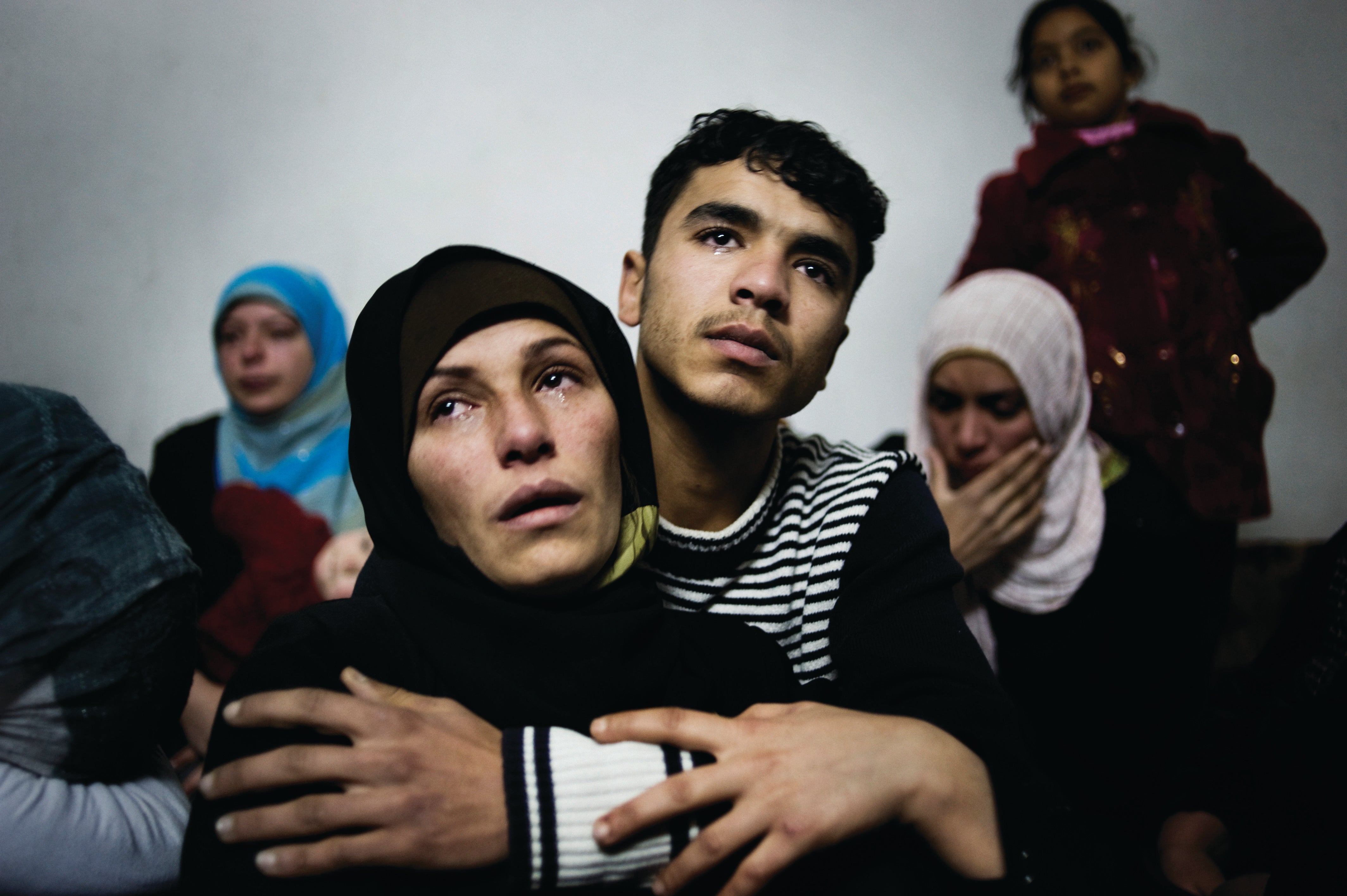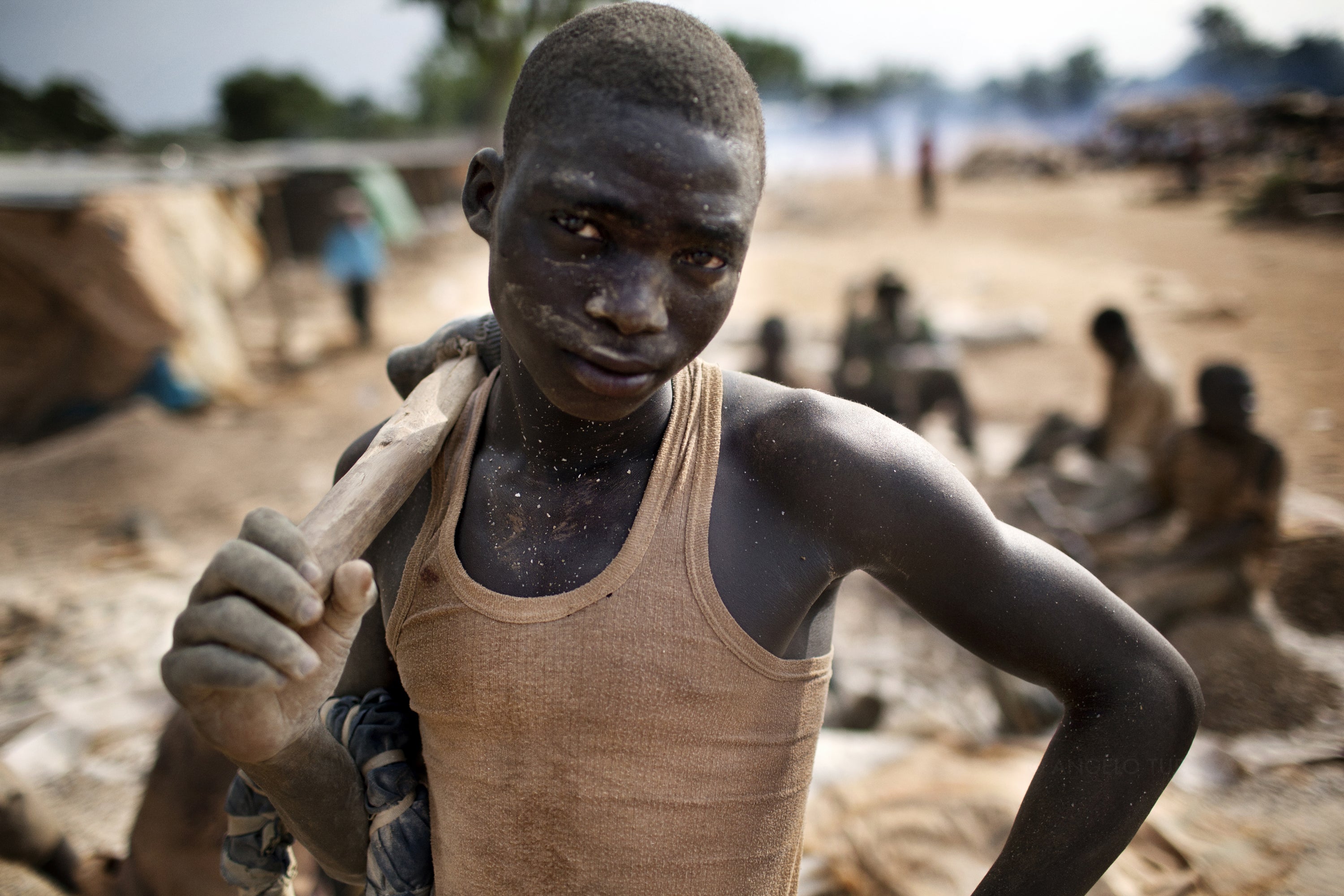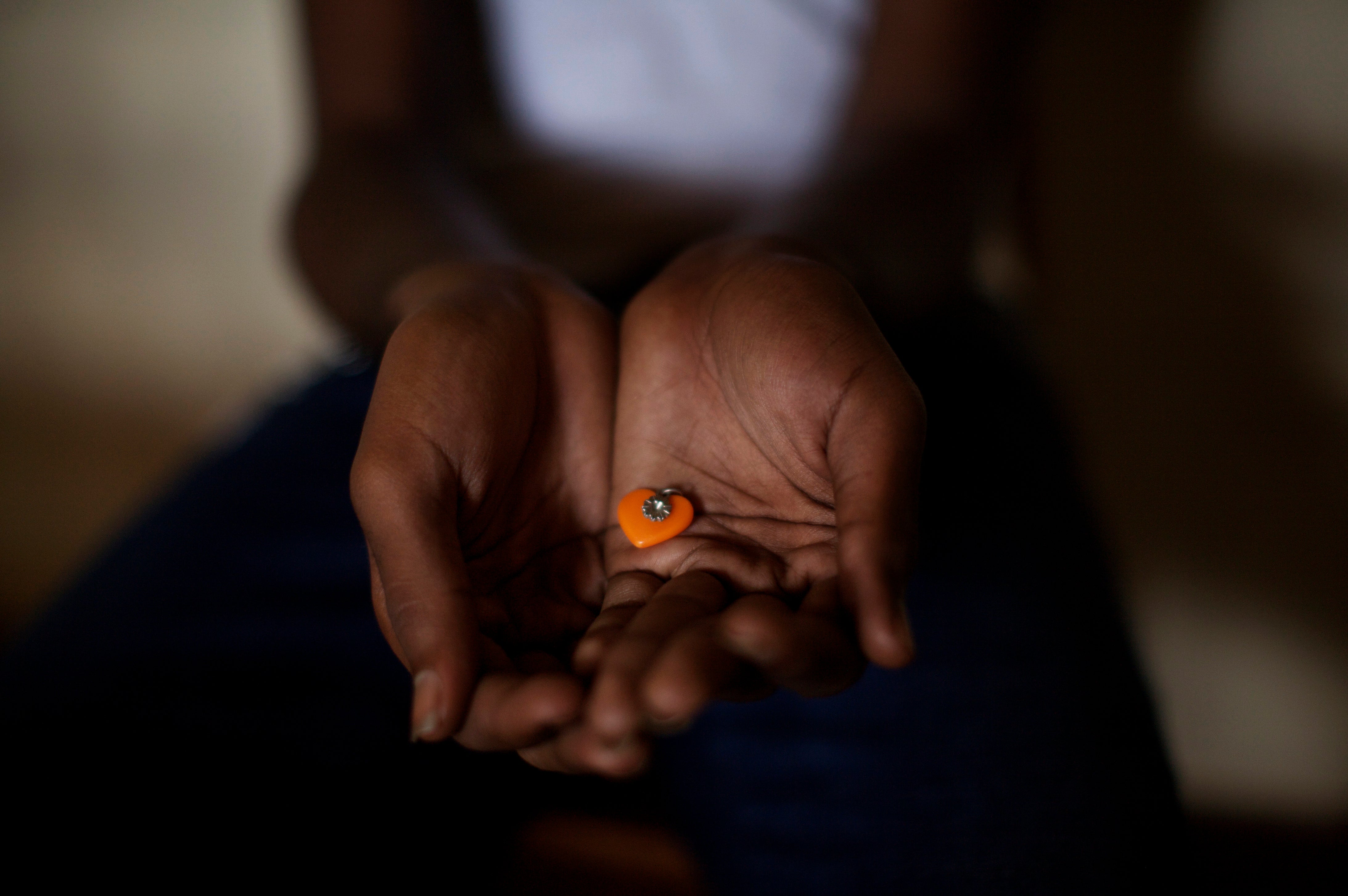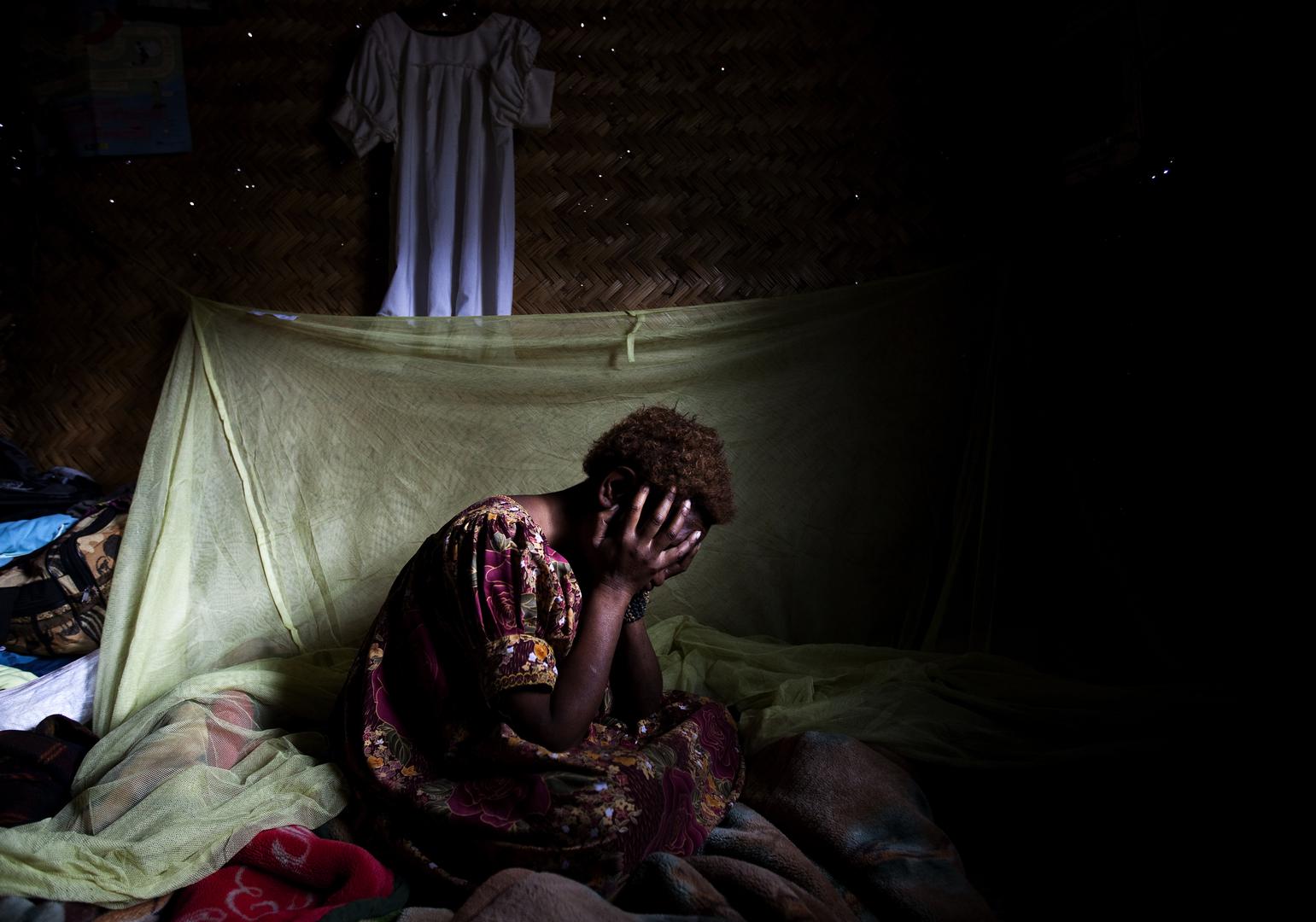Attacks by the militant Islamist group Boko Haram and abuses by government security forces led to spiraling violence across northern and central Nigeria. This violence, which first erupted in 2009, has claimed more than 3,000 lives. The group, which seeks to impose a strict form of Sharia, or Islamic law, in northern Nigeria and end government corruption, launched hundreds of attacks in 2012 against police officers, Christians, and Muslims who cooperate with the government or oppose the group.
In the name of ending Boko Haram’s threat to Nigeria’s citizens, government security forces have responded with a heavy-hand. In 2012, security agents killed hundreds of suspected members of the group or residents of communities where attacks occurred. Nigerian authorities also arrested hundreds of people during raids across the north. Many of those detained were held incommunicado without charge or trial, in some cases in inhuman conditions. Some were physically abused; others disappeared or died in detention. These abuses in turn helped further fuel the group’s campaign of violence.
The failure of Nigeria’s government to address the widespread poverty, corruption, police abuse, and longstanding impunity for a range of crimes has created a fertile ground for violent militancy. Since the end of military rule in 1999, more than 18,000 people have died in inter-communal, political, and sectarian violence.
Episodes of deadly inter-communal violence, including in Plateau and Kaduna States, continued in 2012. Abuses by government security forces and the ruling elite’s mismanagement and embezzlement of the country’s vast oil wealth also continued largely unabated. Free speech and the independent media remained robust. Nigeria’s judiciary continued to exercise a degree of independence, but many of the corruption cases against senior political figures remained stalled in the courts.
Boko Haram Violence
Suspected Boko Haram members have carried out hundreds of attacks, including suicide bombings, across northern and central Nigerian since 2009, killing more than 1,600 people. The group has primarily targeted police and other government security agents, Christians, and Muslims working for or accused of cooperating with the government.
At this writing, suspected Boko Haram members had gunned down or bombed worshipers in at least 16 church services in 2012. The group also burned schools, bombed newspaper offices, and assassinated Muslim clerics, politicians, and traditional leaders. In the first 10 months of 2012 alone, more than 900 people died in suspected attacks by the group—more than in 2010 and 2011 combined.
Conduct of Security Forces
Government security forces have been implicated in serious human rights violations in response to the Boko Haram violence. During raids in communities where attacks have occurred in 2012, soldiers have allegedly burned homes and executed Boko Haram suspects or residents with no apparent links to the group. Nigerian authorities have rarely brought anyone to justice for these crimes.
Nigeria’s police force continues to be implicated in frequent human rights violations, including extrajudicial killings, torture, arbitrary arrests, and extortion-related abuses. Despite promising public statements by the new inspector general of police, corruption in the police force remains a serious problem. The police routinely solicit bribes from victims to investigate crimes and from suspects to drop investigations. Senior police officials embezzle or mismanage police funds, often demanding monetary “returns” from money that their subordinates extort from the public.
Meanwhile, the authorities have still not prosecuted members of the police and military for the unlawful killing of more than 130 people during the 2008 sectarian violence in Jos, Plateau state, the soldiers who massacred more than 200 people in Benue State in 2001, or soldiers involved in the complete destruction of the town of Odi, Bayelsa State, in 1999.
Inter-Communal and Political Violence
Episodes of inter-communal violence continued in both Plateau and Kaduna States, in central Nigeria. At this writing more than 360 people had died in 2012 in these two states. Victims, including children, were hacked to death, shot, and burned alive—in many cases simply based on their ethnic or religious identity. Inter-communal clashes in 2012 in Adamawa, Bauchi, Benue, Ebonyi, Nasarawa, and Taraba States left more than 185 dead and hundreds more displaced. Federal and state authorities failed to break the cycle of violence by holding the perpetrators of these crimes accountable.
State and local government policies that discriminate against “non-indigenes” people who cannot trace their ancestry to what are said to be the original inhabitants of an area—also continue to exacerbate inter-communal tensions and perpetuate ethnic-based divisions.
Government Corruption
President Goodluck Jonathan sacked the chairperson of the leading anti-corruption agency, the Economic and Financial Crimes Commission (EFCC), in November 2011, but the EFCC, under its new head, Ibrahim Lamorde, has also made little progress in combating government corruption. At this writing, the EFCC had filed corruption charges in 2012 against a former governor of Bayelsa State, who had fallen out with President Jonathan, and oil marketers for their alleged role in a fraudulent fuel subsidy scheme, but executive interference with the EFCC, a weak and overburdened judiciary, and the agency’s own failings have continued to undermine the effectiveness of its work.
The country’s other prominent anti-corruption agency, the Independent Corrupt Practices and Other Related Offences Commission, filed charges in September against a former inspector general of police, Sunday Ehindero, and a former police commissioner for allegedly embezzling public funds. At this writing, not a single senior political figure in Nigeria was serving prison time for corruption.
Violence and Poverty in the Oil-Producing Niger Delta
The federal government’s 2009 amnesty program—which saw some 26,000 militants, youth, and gang members surrender weapons in exchange for amnesty and monthly cash stipends— has reduced attacks on oil facilities in the Niger Delta. The government has doled out these financial incentives—some US$400 million annually—from the additional oil revenue, but it has still not addressed the underlying causes of violence and discontent in the region, such as poverty, government corruption, environmental degradation from oil spills, and impunity for politically sponsored violence. Meanwhile, others want part of the lucrative rewards, and in September the government announced that an additional 3,642 “ex-militants” would be added to the program.
Sexual Orientation and Gender Identity
Nigeria’s criminal and penal codes punish consensual homosexual conduct with up to 14 years in prison. Sharia penal codes in many northern Nigerian states criminalize consensual homosexual conduct with caning, imprisonment, or death by stoning. In March, a court in Nasarawa State sentenced two men to two-year prison terms for having sexual intercourse, and in September an Abuja court sentenced a man to three months in prison for sodomy.
In November 2011, the Senate passed sweepingly discriminatory legislation that would criminalize anyone who enters into or assists a same-sex marriage, or supports lesbian, gay, bisexual, or transgender groups or meetings. At this writing, the House of Representatives had passed the second reading of the bill. Similar legislation has stalled at least twice in the past amid opposition from domestic and international human rights groups.
Health and Human Rights
Widespread lead poisoning from artisanal gold mining in Zamfara State has killed at least 400 children since 2010. At this writing 1,500 children were being treated for lead poisoning, but thousands of other affected children had not received any medical care. Funds were pledged by the federal government in May to clean up the environment but had not been released at this writing. The government has also failed to implement safer mining practices, which could reduce the rate of lead poisoning.
Freedom of Expression and Media
Civil society and the independent media openly criticize the government and its policies, allowing for robust public debate. Yet journalists are still subject to arrest and intimidation when reporting on issues implicating Nigeria’s political and economic elite. In October, a High Court judge in Abuja awarded Desmond Utomwen, a journalist with the weekly The News magazine, more than $630,000 in damages after police officers in December 2009 severely assaulted him while covering a protest outside a bank in Abuja, the capital.
Several journalists were also killed in 2012. In January, Nansok Sallah, news editor for the federal government’s Highland FM, was found dead under a bridge in Jos, and in April Ibrahim Mohammed, a film editor with Africa Independent Television, a private station, was found dead in a pool of blood in Kaduna. Chuks Ogu, a cameraman with a private television station in Edo State, Independent Television, was gunned down in April in Benin City.
On January 20, Enenche Akogwu, a journalist with Channels Television—also a private station—was killed during citywide attacks by Boko Haram on police facilities in Kano. Boko Haram bombed the offices of a private newspaper ThisDay in Abuja and Kaduna on April 26, killing at least seven people. The group also threatened to attack other media establishments.
Key International Actors
Nigeria’s role as a regional power, Africa’s leading oil exporter, and a major contributor of troops to United Nations peacekeeping missions, has led foreign governments to be reluctant to exert meaningful pressure on Nigeria over its poor human rights record.
The United States government in June designated three Boko Haram members as “Specially Designated Global Terrorists,” and in August pledged to help Nigeria develop an “intelligence fusion cell.” In November, the US State Department expressed serious concerns about Nigerian security force abuses in combating the Boko Haram violence.
The United Kingdom continued to play a leading role in international efforts to combat money laundering by corrupt Nigerian officials. A London court in April sentenced powerful former Delta State governor James Ibori to a 13-year prison term for money laundering. However, the UK continues to provide substantial foreign aid to Nigeria, including security sector assistance, without demanding accountability for government officials or members of the security forces implicated in corruption or serious human rights abuses.
UN High Commissioner for Human Rights Navi Pillay warned in January and June that Boko Haram’s attacks may constitute crimes against humanity. The International Criminal Court (ICC) continued its “preliminary examination” of the situation in Nigeria. The ICC prosecutor, Fatou Bensouda, visited Abuja in July and her office released a report in November stating that there is a reasonable basis to believe that Boko Haram has committed acts constituting crimes against humanity.




